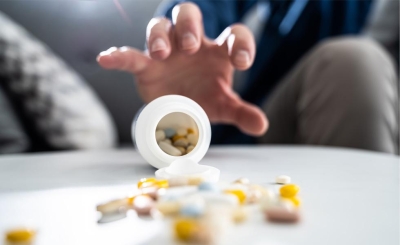It is Time to Move Past Maslow's Hammer in Pain Management
Abraham Maslow first published the famous proverb “if all you have is a hammer, then everything looks like a nail,” in 1966 in The Psychology of…

"It would seem that, quite possibly, the ultimate measure of health in any community might well reside in our ability to stand in awe at what folks have to carry rather than in judgment at how they carry it."
--Gregory Boyle
A family member recently expressed her inability to feel compassion for the hundreds of thousands of lives we have lost due to the #opioidepidemic. Drinking a beer while social distancing in lawn chairs spread out in a three-stall garage, I was trying to put the magnitude of the mortality from COVID-19 into perspective by sharing that more than 750,000 Americans have died from drug overdose since 2000, more than 70,000 in the past year. She coldly retorted, “There is no comparison because I can get the coronavirus just by walking through the grocery store. I could never become addicted to pain medicine.”
Not so fast. The biggest factor in society's failure to effectively manage the #opioidcrisis is our under-reaction to it and that we have mistakenly associated it with people who are unemployed, uneducated, or homeless. Opioid use disorder is a ubiquitous disease in teachers, businesswomen, high school football players, factory workers, and clergy. Of the people who misuse prescription pain medicine, 70% are employed.
Opioid use disorder frequently starts with well-intentioned efforts for pain relief after a car accident, a fall, or surgery. Bam. Hooked. Opioids work on the brain in a powerful way and no individual, no family is safe from its ravages. It is not about moral fortitude. It is about lack of education. It is about a medical and societal disease. It could happen to every one of us. And yes, dear sister-in-law, it could happen to you.
Please check back regularly for recent articles, information, and insights from Dr. Essay regarding relevant Medical Legal Consulting news.